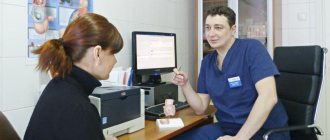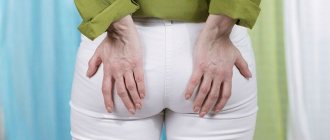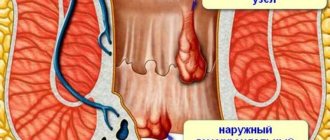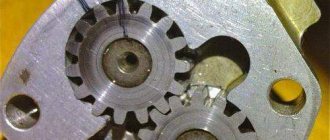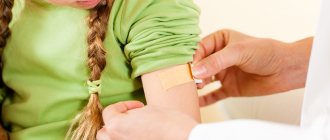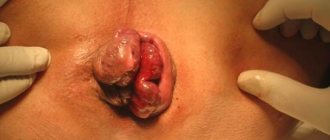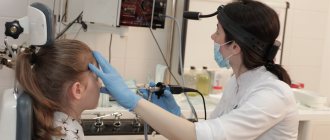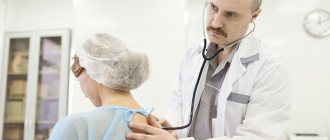The very name of the disease “hemorrhoids” is Greek. haima "blood" + rein "to flow" - indicates one of its main symptoms.
Bleeding from the anus occurs in the vast majority of patients. In this case, bleeding can occur both during bowel movements and completely unexpectedly. In any case, such a clinical picture requires immediate treatment of hemorrhoids.
It should be noted that bleeding is sometimes the only symptom of pathology. Therapeutic tactics for this group of patients are somewhat different than for other categories.
Features of hemorrhoidal bleeding:
- Bright scarlet color of blood.
- During hemorrhoidal bleeding, blood is released in drops.
- There are frequent cases of absence of pain syndrome.
Hemorrhoidal bleeding is divided into heavy and moderate. Abundant ones are of a regular nature, that is, they manifest themselves with every act of defecation. These are arterial bleedings released in splashes or streams. Blood can be seen on the walls of the toilet, on toilet paper, and in feces. Moderate bleeding is observed exclusively with constipation or due to a sudden change in diet.
Causes of bleeding from hemorrhoids
- Injury to hemorrhoids by too hard stool. As a rule, it occurs against the background of regular constipation.
- Regular diarrhea.
- Severe inflammation of the rectal mucosa.
- Pushing during childbirth.
Procto-Glivenol® is a modern, combined drug for the treatment of hemorrhoids
Procto-Glyvenol® reduces the incidence of bleeding from hemorrhoids thanks to tribenoside, does not contain hormones and antibiotics, is available in the form of suppositories or cream, which allows each patient to choose the most comfortable treatment.
More information about the drug
Types of bleeding and their elimination
Hemorrhoidal bleeding can be scanty or profuse.
Scanty bleeding is characterized by the appearance of several spots of blood on linen or paper after visiting the toilet.
Heavy bleeding begins with the loss of 1-2 ml of blood. But if left untreated, it can quickly progress to the stage of massive blood loss, which poses a great threat to health.
To eliminate bleeding, you need to wash yourself with cool, but not cold water, otherwise paraproctitis may be added to hemorrhoids. This brings instant relief as the inflamed nodes shrink in size, closing the outlet for blood.
After washing, it is necessary to apply an ointment that has anti-inflammatory and anticoagulating effects to the affected area.
At the initial stage of the disease, the use of such medications eliminates symptoms, and with advanced hemorrhoids, it alleviates the patient’s condition, reducing swelling of the anal mucosa, soothing pain and relieving burning.
Bleeding is a sign that a fissure has appeared in the anus. If no action is taken to treat hemorrhoids, over time it will be complicated by anemia, up to severe severity with hemoglobin less than 80 g/l, chronic reflex constipation, and can transform into a bleeding tumor.
Regardless of whether the bleeding is scanty or heavy, you must immediately consult a doctor! You can consult online with a therapist or proctologist.
Diagnostics
Even with a single bleeding from the anus, the patient urgently needs to consult a proctologist! In addition to the initial digital examination of the rectum, the diagnostic appointment ideally includes colonoscopy - an endoscopic examination of the large intestine.
The main goal of medical procedures is to exclude cancer.
Remember that timely diagnosis is much more effective than any expensive treatment in the later, advanced stages of the disease. Don't forget to monitor your health and don't lose sight of even the smallest problems!
Treatment of hemorrhoids accompanied by slight bleeding
To cope with the disease, it is important to find the right method of dealing with it. Some people benefit from diets and suppositories, while others need surgery.
At the first manifestations of the disease, you must adhere to simple rules of nutrition and hygienic care.
Diet food
Review your diet by eliminating everything fatty, fried, spicy, pickled, as well as desserts, coffee and alcohol.
The daily diet should include cereals (with the exception of semolina, rice and corn), soups with a mucous consistency, stale or dried bread, lean meat or dietary fish, steamed, drinking plenty of fluids (decoctions of berries and herbs, non-acidic natural juices).
Taking cool baths
As a bath, it is best to use decoctions of herbs with anti-inflammatory or astringent effects - chamomile, calendula, oak bark.
The decoction for each procedure must be freshly prepared and sufficiently cooled. You need to sit in it every day for 10-15 minutes. As an alternative to baths, wiping the anus with a piece of ice is used.
Replacing toilet paper by flushing
Since the main reason for non-healing of erosion in the anus is the entry of feces into the wound, they must be disposed of after each act of defecation by regular washing.
Use of topical medications
Ointments and suppositories will not cure on their own if the disease is advanced and progresses. But if used regularly at the initial stage, they can help.
A good remedy for bleeding hemorrhoids is suppositories with sea buckthorn oil.
What happens when hemorrhoids rupture?
At the moment when hemorrhoids burst, pain is observed, followed by bleeding, during which the blood clot comes out through the damaged vessel wall. In the future, many patients note an improvement in their condition due to the cessation of pain that accompanied thrombosis.
Attention! When a node ruptures, it is important to completely empty the vessel of blood clots. Otherwise, there is a risk of infection of the wound surface.
The edges of the rupture of the vessel and mucosa (anal fimbria) are often very painful, and, like the wound itself, are an entry point for infection. Therefore, a person with a similar problem needs to carefully monitor the hygiene of the anal area. In case of infection, suppuration, increased pain, increased body temperature, and chills can be observed. The appearance of such symptoms is a reason for urgent hospitalization.
Treatment of hemorrhoids accompanied by heavy bleeding
When hemorrhoids are inflamed and enlarged, blood can flow in a stream not only when visiting the toilet, but also with any sudden movement or physical stress.
In this case, you need to take effective medications. Remember that only your attending physician can prescribe them, taking into account the course of the disease and the individual characteristics of the body.
Treatment methods for hemorrhoids with heavy bleeding:
- Taking tablet medications.
- The use of anti-inflammatory ointments and suppositories. Inexpensive candles (average price 50-120 rubles): Belladonna extract, Anuzol, Methyluracil, Betiol. The most effective (300-600r): Relief, Procto-glivenol, Ultraproct, Nigepan, Proctosan, Hepazolon. In some cases, injections of hemostatic drugs.
Doctor's advice
Everyone has heard that there is food that strengthens, and there is food that weakens. But people often confuse the properties of their usual food products. It is worth paying attention to the ability to produce gas - this can contribute to additional discomfort with hemorrhoids.
Victoria Druzhikina Neurologist, Therapist
- If there is a risk of anemia, take vitamins C and K, as well as preparations containing iron.
- Sclerotherapy using medications.
- Radical measures are surgery. It is used in cases where other methods do not produce results or their use is futile, the decision is made by the surgeon.
If you are in doubt about which candles to choose, consult your physician.
Causes of blood in stool
Stool with blood visible to the naked eye is most often observed with hemorrhoids, anal fissure, colorectal cancer and colitis. It is noteworthy that the nature of rectal bleeding in each of the listed diseases has certain differences.
Haemorrhoids
Inflammatory disease of the hemorrhoidal veins of the rectum, accompanied by expansion and thrombosis of the hemorrhoids.
Bloody discharge is usually scanty, bright scarlet or bright red. In rare cases, dark-colored blood or bloody clots are observed. Distinctive feature: blood is not mixed with feces.
Other symptoms of hemorrhoids: pain, itching, a feeling of fullness in the rectum, prolapse of hemorrhoids outward.
Anal fissure
Rupture of the mucous membrane of the anal canal, most often of traumatic origin.
The pattern of bleeding resembles the symptoms of hemorrhoids: scarlet or red blood, not mixed with feces. The amount of blood is usually small, although with large cracks the blood loss can be significant.
Other symptoms of anal fissure: pain during bowel movements, quickly subsiding after bowel movement; occasionally, if the gap is inflamed, there is a feeling of fullness.
Colorectal cancer
Malignant tumor of one or more parts of the colon.
The blood may be red or distinctly black. A distinctive feature: blood is released at the beginning of the act of defecation, and not at the end, as with hemorrhoids or anal fissure. In some cases, all excreted feces may become bloody in color.
Other symptoms of colorectal cancer: the presence of a large amount of mucus or pus in the stool, a specific smell of stool, pain in the abdomen, stool disorders, a feeling of incomplete bowel movement, flatulence, constant weakness and fatigue, sudden weight loss.
Ulcerative colitis
Inflammation of the mucous membrane of the large intestine with the formation of ulcerations (wounds).
Blood is always mixed with feces, but more often in the form of subtle inclusions or bloody mucus. In the later stages of the disease, blood or bloody mucus may be released even outside of bowel movements.
Other symptoms of ulcerative colitis: frequent and liquid stools, with a foul odor, sometimes mixed with pus; frequent urge to defecate; cramping pain in the abdomen, often on the left side; constant flatulence; general weakness and severe emaciation.
Other reasons
The presence of blood in the stool can also be observed in some other diseases:
- stomach and duodenal ulcers;
- Crohn's disease;
- intestinal polyps;
- syphilitic ulcers of the rectum;
- gonorrheal proctitis, etc.
A separate group of causes of bloody impurities in the stool includes various intestinal infectious diseases of a viral, bacterial or protozoal (parasitic) nature: dysentery, salmonellosis, botulism, enterovirus, rotavirus, cytomegalovirus, amoebiasis, etc. Each intestinal infection has its own specific clinical picture, but in general terms the course of development of most intestinal infections resembles ulcerative colitis.
Treatment of hemorrhoids during pregnancy
Every second woman suffering from inflammation of hemorrhoids developed this disease during the most wonderful period of her life - during pregnancy.
Developing in the mother's womb, the fetus affects blood circulation and intestinal function, causing various problems, including hemorrhoids. The disease may appear in the last months of pregnancy or after childbirth.
Factors that can trigger the appearance of hemorrhoids during pregnancy:
- weakness of the rectal muscles;
- tendency to constipation;
- abuse of fatty and spicy foods;
- increased physical activity.
To prevent the occurrence of hemorrhoids during pregnancy, three conditions must be met - avoidance of spicy foods, a minimum of physical activity and normalization of stool.
For mild hemorrhoidal inflammation, ointments, creams and suppositories are used, paying attention to their composition: the drugs should not have a toxic effect on the fetus.
The best option are candles:
- suppositories can be bought at any pharmacy without a prescription;
- suppositories have a complex effect - they not only relieve pain, but also help eliminate constipation and flatulence, eliminate unpleasant obsessive itching in the anus;
- are easy to use and allow a woman to take care of herself independently, even in the last months of pregnancy, when medical procedures are complicated by a protruding belly.
Why does a hemorrhoid rupture?
Due to acute hemorrhoids, in which severe symptoms are observed (severe pain, enlarged nodes, pain during defecation), thrombosis of the hemorrhoidal node may develop. The same complication occurs with exacerbation of chronic hemorrhoids. In both cases, in a greatly enlarged node, blood thickening and blood clot formation are observed. This happens when the dilated hemorrhoidal veins are severely overfilled with blood. Next, an inflammatory process forms around such a node.
During acute thrombosis, several successive stages are distinguished:
- Isolated node thrombosis.
- Thrombosis of the hemorrhoid with local inflammatory reaction of the perianal folds.
- Thrombosis, in addition to inflammation, is accompanied by necrotic changes in the node.
A pathological increase in blood pressure in the node contributes to its thrombosis and inflammation
Many patients with this disease wonder: can hemorrhoids burst? Sometimes the pressure in the veins can be so strong that the venous wall can actually rupture, especially if there is thrombus formation and local inflammation.
Triggering factors for hemorrhoidal rupture are:
- Severe straining during defecation. In this case, blood flows in large quantities to the hemorrhoids, overflowing them. The walls of the vessels may not withstand and rupture. In this case, bleeding from the burst node is observed.
- Improper nutrition, which leads to hardening of stool and the development of constipation. With constipation, a person has to use strong straining to empty the intestines, which can lead to rupture of hemorrhoids.
- Pregnancy and childbirth. During the period of bearing a child, due to hormonal changes and the growing uterus, the outflow of blood from the hemorrhoidal veins is disrupted. All this contributes to stretching of the walls of blood vessels and increases the chance of rupture of the node. This risk increases many times during childbirth, when the load on the vascular bed increases greatly.
- Lifting a large load. When lifting heavy objects, the pressure in the abdominal cavity and pelvis increases, the outflow of blood from the hemorrhoidal veins becomes very difficult, they fill with blood and expand. If you suddenly lift an impressive load when you have hemorrhoids, the nodes can burst, which leads to rectal bleeding.
- During anal sex in the presence of hemorrhoids, mechanical trauma to the nodes and their overflow with blood occurs, which also threatens the rupture of these formations.
- Sometimes perforation of a hemorrhoid can occur during a hypertensive crisis in elderly people, when blood pressure reaches very high numbers.
- Physical inactivity and constant sitting while working.
- Abuse of spicy, sour, fried, smoked foods, alcohol, spices, which leads to frequent exacerbations of hemorrhoids.
Medicinal herbs for the treatment of hemorrhoids
Our grandmothers also used herbs with enveloping, anti-inflammatory and astringent effects to treat hemorrhoids, which are very effective for use at home.
To the already mentioned chamomile, calendula and oak bark, you can add yarrow, blueberries, and wheatgrass root. Decoctions from these plants are suitable for both baths and mini-enemas.
Aloe juice has a therapeutic effect in the fight against hemorrhoids, preventing inflammation and healing cracks. All herbs should be started at low concentrations to avoid possible allergic reactions if tolerance to a particular herb is unknown.
Juice and gruel from raw potatoes are used with great success in the treatment of hemorrhoids. Potatoes can stop bleeding, speed up the healing of cracks, and restore the condition of the rectal mucosa.
Hemorrhoids are a very unpleasant disease that causes discomfort. As the disease progresses, bleeding may occur. To avoid this, do not start the disease, but at the first symptoms, contact a specialist who will prescribe effective treatment, taking into account all the characteristics of your body.
What to do if there is blood in the stool
There can be only one correct decision in such a situation - to immediately visit a proctologist, who will conduct an examination, prescribe the necessary laboratory or instrumental tests, after which he will make an accurate diagnosis and prescribe the appropriate treatment. Statistics show that about 60-70% of rectal bleeding is caused by hemorrhoids, which can be successfully treated with modern medicine, and therefore one should not immediately suspect cancer and delay a visit to the doctor for fear of “hearing a bad diagnosis.”
Attention: any attempts to determine the cause of stool with blood on your own (so to speak, “by symptoms”), followed by self-medication, will only lead to aggravation of the disease and a worsening of the overall clinical prognosis, and therefore the medical doctor strongly does not recommend postponing a visit to the doctor if there is stool after bowel movements. Blood began to be observed, even in the smallest quantities.
Surgeon-coloproctologist, surgeon of the highest category. Rakhmatullin Andrey Albertovich
Product table
| The product's name | Fastens | Weakens | Gives gas formation |
| Cabbage | + | + | |
| Whole milk | + | + | |
| Sour milk | + | ||
| Beet | + | ||
| Bakery | + | ||
| Peas | + | ||
| Egg | + | ||
| Semolina | + | ||
| Cream | + | ||
| Potato | + | ||
| Fatty meat | + | + | |
| Plum | + | ||
| Chokeberry | + | ||
| Pear | + | ||
| Black bread | + | ||
| Rice | + | ||
| Pomegranate | + | ||
| Apricot | + | ||
| Persimmon | + | ||
| Black tea | + | ||
| Walnut | + |
Find out about the most effective candles from the video:
This article has been verified by a current qualified physician, Victoria Druzhikina, and can be considered a reliable source of information for site users.
Bibliography
1. https://www.gastroscan.ru/literature/authors/9497
Rate how useful this article was
4.3 15 people voted, average rating 4.3
Did you like the article? Save it to your wall so you don’t lose it!
When is surgical correction necessary?
In some cases, conservative therapy does not give the desired results in treating a burst hemorrhoid. Therefore, if bleeding continues during the day and your health progressively worsens, you should consult a proctologist. It is possible that the thrombus from the node was not completely evacuated with the released blood through the perforated vein. In this case, surgical revision may be necessary.
In addition, other hemorrhoids may be in a state of thrombosis and threatening rupture. In this case, the doctor can significantly alleviate the patient’s condition by making an incision over the node, followed by its revision and suturing.
Surgical treatment is the only way to radically cure hemorrhoids
Surgical treatment is also most often inevitable when signs of purulent inflammation appear in the node.
Folk remedies
Properly selected herbs will relieve pain and help remove the cause of bleeding.
Folk remedies for bleeding from hemorrhoids, known for a long time and proven by many generations, can be a fairly effective way to combat this disease if used together with treatment prescribed by a doctor. If the question urgently arises of what to do if hemorrhoids are bleeding, folk remedies will help calm the body and reduce pain until the moment when it is possible to get medical advice. Treatment of hemorrhoidal bleeding with folk remedies is carried out using natural ingredients: berries, herbs, roots. There are several recipes for folk remedies for the treatment of bleeding hemorrhoids, which can be recommended in addition to the main treatment.
Decoction of calendula with chamomile
To prepare it, you need to pour 2 tablespoons of boiling water into a glass. dried herbs calendula and chamomile in equal proportions and let it brew for several hours. Chamomile mono-decoction is made from 2 small spoons of the herb. You can use it to make gauze lotions or microenemas.
Herbal ice packs
You can freeze the decoction in the refrigerator in small compress molds and use it as candles.
Blueberry decoction
To treat hemorrhoidal bleeding at home, prepare blueberry decoction. Berries (2 tablespoons per 1 glass of water) need to be cooked for half an hour in a water bath. Then remove them, and add boiled water to the remaining liquid until a glass is filled. You can do an enema with it. One fourth of the glass is used at a time.
Yarrow herb decoction
Yarrow is an effective folk remedy in the treatment of bleeding hemorrhoids. The herb needs to be boiled in 250 ml of water for 15 minutes. Then it is filtered, boiling water is added to a volume of 250 ml and used for enemas.
Mixed decoction
It requires quite complex components: 2 tbsp. l. oak bark, 1 tbsp. horsetail, 1 tbsp. l. valerian root. They need to be poured into a water bath with 500 ml of water. Then simmer for half an hour and leave for six hours, after which the grass is removed and lotions, enemas, and baths are made with the decoction.
These are the main recipes used to treat bleeding from hemorrhoids at home, which have proven to be effective. Folk remedies require more time for the therapeutic effect to appear and the result to be visible, but they do not cause significant harm to the body and mitigate the damage caused by medications. There are also folk remedies for bleeding hemorrhoids that need to be taken orally:
- 1 tbsp. Dry nettles need to be steamed in a glass of water in a water bath. The decoction is drunk three times a day, 1-2 tablespoons;
- A quarter glass of fresh beet juice three times a day also has a beneficial effect on blood circulation and other body systems.
Water baths
To take baths, it is not necessary to climb into a large bathtub
. Information on how to cure bleeding hemorrhoids at home would be incomplete without mentioning such a popular method as taking sitz baths. Treatment of bleeding hemorrhoids with folk remedies is often carried out using these baths, which use water with the addition of decoctions and tinctures of natural ingredients. To treat bleeding from hemorrhoids at home using baths, use cold water, adding decoctions of chamomile and calendula, yarrow and others. They should be taken twice a day in a small container, for example, in a basin, where you should sit for five to seven minutes. A decoction of onion peels in the amount of half a glass with the addition of a small dose of mumiyo is also added to the bath water, but this time hot. The anal area should be kept in it until the water cools. A garlic bath helps in the treatment of bleeding hemorrhoids, effectively combating blood stagnation. To prepare it, add a paste of cloves of 1 head of garlic to five liters of hot water. You can stay in such water for no longer than 15 minutes.
First aid
Having discovered blood, the first thing a person should do is make an appointment with a specialist. But until then, you can not wait, but resort to quick help before visiting a doctor.
The first thing a patient should know is that bleeding from hemorrhoids does not pose a threat to life, and stopping it is not difficult.
Methods to stop bleeding involve the use of cold water or ice - cold constricts blood vessels and reduces their permeability
The following steps will help stop the bleeding:
Compress
Gauze or bandage, preferably sterile, is folded in several layers, moistened with cold water and applied to the affected area.
Ice packs
Pieces of ice should be wrapped in a bandage or a piece of gauze and also applied to the inflamed, bleeding nodes.
Ice candles
If the previous methods help with external bleeding, then the next method helps if hemorrhoids are bleeding internally. To stop bleeding, you need the following: make a form out of paper, fill it with water or herbal infusion and place it in the freezer. When the candles are frozen, they are released from the wrapper, placed in boiling water for a couple of seconds, and inserted into the anus.
The first procedures should not last longer than 5 seconds, but gradually the time can be extended.
These methods are excellent for treating bleeding, but some nuances should be taken into account: the procedure using cold should not be long, otherwise treatment can lead to an exacerbation of inflammatory diseases - pyelonephritis, cystitis, pancreatitis, etc.
In case of severe bleeding, it is permissible to take one of the hemostatic medications:
- Etamzilata,
- Dicinona,
- Vikasola.
Long-term therapy with medications of this type without consulting a doctor and their use without good reason are not recommended.
Another method is a hemostatic sponge, which is an effective hemostatic agent.
The sponge is applied to the damaged nodes for 1-2 minutes, it absorbs the blood and the bleeding stops. If necessary, it is inserted into the anus. There is no need to remove it, as the sponge dissolves on its own.
Such emergency measures help to quickly get rid of bleeding, but this is only a temporary effect - inflammation of hemorrhoids requires mandatory treatment. It is advisable to undergo diagnostics and receive recommendations from a proctologist. Doctors often prescribe the use of effective folk remedies.


